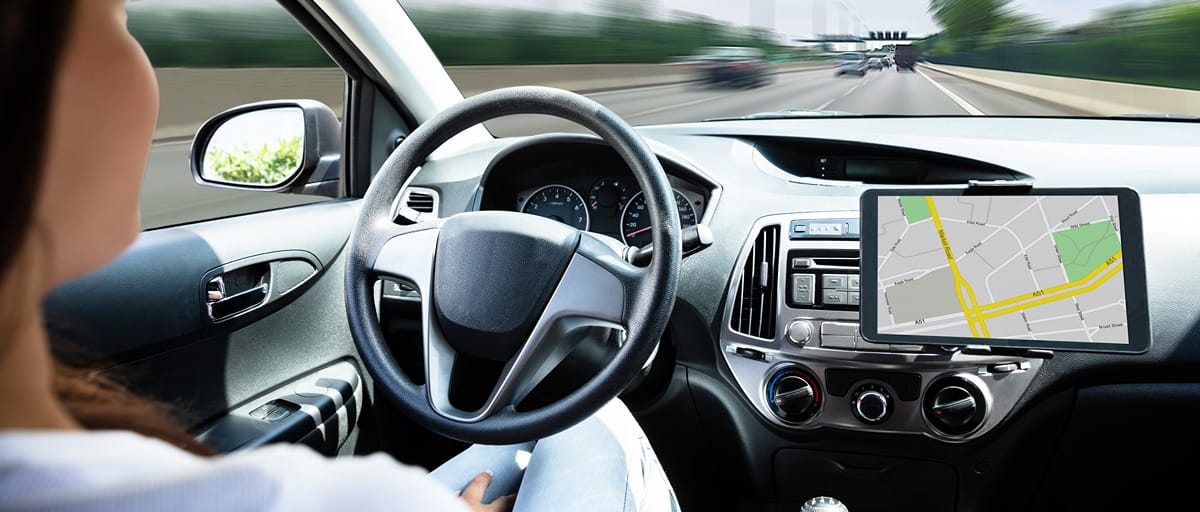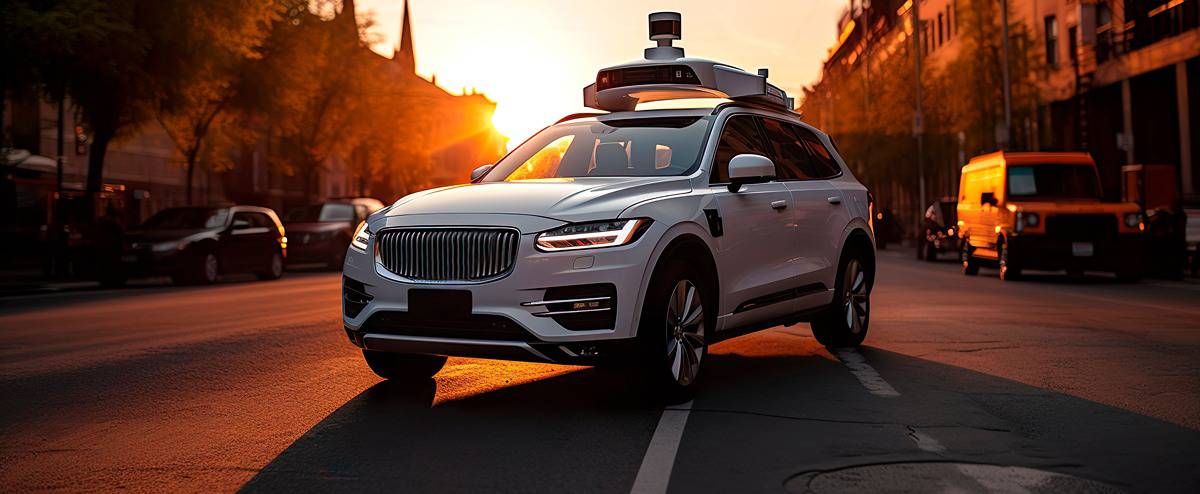As autonomous vehicles make their way into mainstream media companies like Waymo, Tesla, BMW, and Uber, each bringing their own innovative take on self-driving vehicle technology.
Although these driverless options are not fully available for everyone, they have already started challenging traditional notions of vehicle operation and liability. For example, Waymo relies heavily on advanced algorithms, while Tesla features its Autopilot mode, and BMW and Uber are both in the developmental stages of their own self-driving technologies. Despite these advancements, the issue of human oversight and responsibility remains a critical concern.
Regardless of the built-in safety measures or the limited availability of these driverless cars, the unfortunate reality is that accidents still occur. When these incidents happen, and no one is in direct control of the vehicle, questions about who will be held responsible becomes complex for injury compensation.
At Colburn Hintze Maletta , we are an expert law firm with experience with liability claims in Arizona, whether you’re dealing with Waymo’s self-driving algorithms or Tesla’s Autopilot features. Rest assured that we will guide you through, helping you secure the justice and compensation you rightfully deserve.
Get Immediate Help from Our Personal Injury Attorneys.
We are Available to Talk Now.
Or, Continue Reading Below About:
Accidents with Self-Driving Cars – Who is Responsible?
The Driver of the “Self-Driving Vehicle”
Under Arizona law, “driver” refers to the person controlling the vehicle. However, in the case of self-driving cars, there is often a debate about who the “driver” actually is.
The Arizona Revised Statutes (ARS) 28-101 defines a driver as “a person who drives or is in actual physical control of a vehicle.”
This definition creates an ambiguous situation when applied to self-driving vehicles.
With the involvement of automation, it could be argued that the software or algorithm controlling the vehicle is the “driver.” Yet, this poses further legal challenges since software cannot be liable for negligence or other torts. The general consensus in the legal community is that the person in the driver’s seat—automated controls or not—is ultimately responsible for the vehicle.
In summary, despite the advancements in self-driving technology, Arizona law still places the responsibility of driving on the human operator.
Statistics about Accidents in Self-Driving
Here are some significant accidents that made headlines:
- February 2016: A Google autonomous vehicle collided with a bus on its inaugural drive.
- May 7, 2016: The first fatal accident involving a Tesla car using its autopilot system occurred.
- Up to 2018: 37 Uber autonomous vehicle accidents were recorded.
- November 30, 2018: A self-driving Uber car fatally hit a pedestrian.
- April 2019: Two individuals lost their lives when a Tesla vehicle in self-driving mode struck a tree.
- May 2021: A Waymo self-driving taxi in Phoenix initiated a series of collisions with multiple cars.
During the testing phase, Waymo’s fleet also recorded specific types of accidents: two while going in reverse, three involving pedestrians, 10 resulting from sideswiping, 15 from rear-ended, and 10 from angled collisions.
According to an Axios report from 2019, about 1,400 self-driving car incidents were reported since 2014.
The Implications of Companies like Waymo on Self-Driving Vehicle Liability
Waymo, a subsidiary of Alphabet Inc., has made significant strides in autonomous vehicle technology. As self-driving cars become increasingly integrated into our everyday lives, the question of liability in the event of an accident becomes more complex. In May 2021, a Waymo self-driving taxi in Phoenix collided with several vehicles, drawing public attention to the limitations and risks associated with autonomous driving technology.
There are several implications when it comes to companies like Waymo and self-driving vehicle liability:
Involvement of Multiple Parties
One of the most significant concerns is identifying the responsible parties. Unlike traditional car accidents where usually one or two drivers are involved, accidents with Waymo vehicles can potentially include the human overseer, the software provider, and even third-party components such as sensors.
Heightened Scrutiny on Safety Measures
Incidents involving Waymo vehicles put a spotlight on the company’s safety protocols. Arizona law, for example, requires autonomous vehicle operators to adhere to all existing traffic laws under Arizona Revised Statutes Title 28. Accidents trigger regulatory investigations that could influence future legislation surrounding self-driving car safety measures.
Evolution of Insurance Practices
The presence of autonomous vehicles like those from Waymo may eventually lead to changes in insurance policies. Traditional models of determining premiums and payouts could be disrupted, as the role of human error diminishes and the focus shifts towards software and hardware reliability.
Public Perception and Adoption Rates
Accidents involving companies like Waymo can affect public sentiment towards autonomous vehicles. Negative incidents can slow down the rate at which these technologies are adopted, as trust in their safety diminishes.
According to a study by the American Automobile Association (AAA), approximately 71% of Americans are afraid to ride in fully autonomous vehicles. This statistic underscores the importance of resolving liability and safety concerns to foster public trust.
Determining Liability in a Collision Involving a Self-Driving Car
When an accident involves a self-driving car, the issue of liability becomes notably complicated. Arizona law offers some guidance on this matter through Arizona Revised Statutes (ARS) 12-2501, which outlines the concept of comparative negligence. This means that multiple parties could share fault, such as the human operator, the vehicle manufacturer, or the software developer responsible for the car’s autonomous features.
Comparative Negligence under ARS 12-2501
According to ARS 12-2501, every party involved in an accident is evaluated for their degree of negligence, which will then determine their level of liability. In a collision with a self-driving vehicle, this could mean that you may still recover damages even if you are partially at fault, provided that another party, like the software developer, also shares some level of negligence.
Importance of Software Logs and Data
One aspect of determining liability is the analysis of software logs from the self-driving car. These logs can reveal whether the autonomous system behaved as expected or if a software glitch contributed to the accident.
For instance, in a 2018 accident involving an Uber autonomous vehicle, the car’s software was found to have identified an obstacle but failed to stop, leading to a pedestrian fatality.
Role of Human Oversight
Even with self-driving technology, human operators are usually still required to be present in the car and capable of taking over control. Their conduct, such as whether they were distracted or had the opportunity to intervene and prevent the accident, can also be scrutinized when determining liability.
Compliance with Traffic Laws
Another layer of complexity involves how well the self-driving car adhered to local traffic laws, which in Arizona fall under Title 28 of the Arizona Revised Statutes. A violation of these laws could be an indicator that the self-driving system was at fault, thereby affecting the liability percentages among the involved parties.
Frequently Asked Questions
1. Who Gets the Ticket in an Autonomous Car Accident?
The answer isn’t straightforward. Under Arizona Revised Statutes ARS 28-101, the “driver” is generally the person in actual physical vehicle control. However, the manufacturer could be held accountable if the car is fully autonomous and no human error is involved.
2. Can the Software Company Be Held Liable?
Yes, under certain conditions. If the software responsible for the car’s autonomous functions has flaws that directly contributed to the accident, the software company could be named a defendant.
3. How Does Insurance Handle Self-Driving Car Accidents?
Insurance companies are still adapting to this emerging technology. They may consider factors such as whether the car was in manual or autonomous mode during the accident and who had operational control.
4. What Is the “Black Box” and Can It Be Used as Evidence?
Most self-driving cars have a data recorder, commonly called the “black box,” which stores detailed information about the vehicle’s operations. This data can be crucial in establishing liability and is often admissible in court.
5. What if the Car Was Hacked?
The hacker could be criminally liable if the car’s software were compromised. However, proving this in court could be a complicated process involving forensic experts.
6. Are Pedestrians at Greater Risk with Self-Driving Cars?
The jury is still out on this. While self-driving cars aim to be safer and more aware of their surroundings, the technology is imperfect. If a pedestrian is hit, determining liability could involve both the manufacturer and human controller, if present.
7. Can I File a Wrongful Death Claim in an Accident Involving a Self-Driving Car?
A wrongful death claim can be filed if a loved one has been killed in such an accident. ARS 12-611 outlines the basics for filing such a claim in Arizona, and multiple parties could be held liable.
8. Are Self-Driving Car Companies Doing Their Own Investigations?
Yes, companies often investigate accidents involving their vehicles. However, it’s crucial to have an independent investigation to ensure unbiased findings.
9. Can I Sue for Emotional Trauma Following a Self-Driving Car Accident?
Emotional trauma claims can be more challenging to prove, but they are possible. These fall under the category of non-economic damages in Arizona.
10. What Are the Future Legal Implications as More Self-Driving Cars Hit the Road?
The growing presence of self-driving cars will likely spur state and federal legislation changes. As autonomous vehicles become more common, we can expect evolving liability, insurance, and safety standards guidelines.
Connect With Us
If you have experienced an injury in a collision involving a self-driving vehicle in Arizona, Colburn Hintze Maletta Law is here to help. We specialize in personal injury and are well-versed in the complexities surrounding self-driving vehicles and Arizona Revised Statutes. Call us today at 602-825-2500. to schedule your first consultation with us. .

David Maletta is a widely respected criminal defense attorney with over 23 years of experience and has worked on over 1,000 cases and has successfully won over 100 jury trials. David graduated from Northern Arizona University, Magna Cum Laude in 1993 with a degree in Psychology. Shortly thereafter, he earned his Juris Doctor degree from Seton Hall University School of Law in 1998. He has extensive experience in criminal and DUI matters, homicide, sexually-based offenses, domestic violence, white-collar crimes, and various misdemeanor crimes.
Always Available 24/7 for Legal Help
Schedule an Appointment Today!
Call Us Now to Speak with an Attorney (602) 825-2500
Real Client Reviews
Below are just a few of what our clients have to say!







